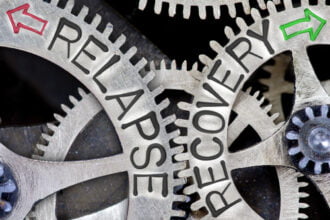If you suspect that someone you know is struggling with addiction, it’s important to be aware of the signs. Addiction can be difficult to spot because people often try to hide it, but some telltale signs may indicate a problem.
Educating yourself on the signs of addiction is essential to know how you can help that person. Here are six signs someone you know is struggling with addiction.
Often talk about their addiction
If someone you know is constantly talking about how much they do something, they might be showing signs of an addiction. For example, if someone talks about how much they use drugs or drink alcohol, they could have a drug or alcohol addiction. They might make jokes about it, casually mention it in conversation, or even talk openly about how often they use it.
This sign can be even more evident if they’re talking about how often they use drugs or alcohol in appropriate situations. For instance, they might bring up the subject at a business meeting or when discussing school projects.
Secretive about their activities
One of the most common signs of addiction is secrecy. People who are struggling with addiction often go to great lengths to hide it from others. They may be overly protective of their phones, delete messages from unknown contacts, and constantly lie about their whereabouts.
They also might give little information about where or what they’re doing and get defensive if you ask questions. They might even lash out at you if you keep pressing questions.
Have financial problems
Addiction can be expensive, and as it progresses, money for whatever addiction they may have may become the person’s top priority. This could mean that they are constantly asking for loans from friends and family or engaging in activities such as selling personal possessions to get money.
Things can get pretty bad if they resort to criminal activities to fuel their addictions. They might resort to stealing, embezzlement, or fraud to get money.
Start neglecting their responsibilities
Addiction can be very time-consuming and cause people to neglect important things in their lives. If someone you know is struggling with addiction, they may miss work, school, family gatherings, or other important events.
They might also start to neglect their physical health, forgoing basic hygiene and nutrition to get more time doing the activities associated with their addiction.
Struggle with relationships
People who are struggling with addiction may have difficulty maintaining relationships, both platonic and romantic. They might constantly be fighting with family members and friends or breaking promises.
They might also become isolated, withdrawing from social events and not keeping in touch with people they used to be close to. Even if you try to reach out to them, they might push you away or make up some excuse, so they don’t have to interact with you.
Change in personality
People who are struggling with addiction may show signs of drastic changes in behavior and attitude. They might become paranoid, aggressive, and irritable, or they might go through sudden shifts in mood.
They could also become apathetic about things that used to be important to them, such as hobbies or activities. If you see these changes happening in someone you know, it could be a sign that they’re struggling with addiction.
What you can do
If you spot any of these signs in someone you know, it’s important to take action and get help for them. Whether it’s through therapy, support groups, or other methods, getting the right treatment can help someone struggling with addiction start down a healthier path.
It’s also important to remember that addiction is a very serious and complex issue, so if you are concerned about someone’s behavior, it’s best to talk to them directly. Be sure to listen to what they have to say and be supportive.
Addiction can be tough to deal with, but there are resources and people who care and want to help. With the right combination of care and support, it’s possible for someone struggling with addiction to recover and live a healthier, happier life.










